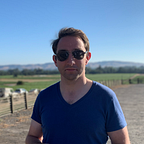Why we acquired Bloc and what happened next
Two weeks after announcing we acquired Bloc I sat down with the founder of a competitor who asked with equal parts curiosity and jealousy, “We looked at Bloc and passed; why’d you guys do it?”
What we saw – but the competition missed – was that after six years of investment the Bloc team cracked one of the hardest problems in scaling high-quality, intensive training. When a school only has a couple hundred students you can know each by name and know each word of the curriculum. But when there are thousands of students, as Thinkful has today, maintaining quality is an entirely different challenge. Empathy at scale takes data, consistency comes from proven processes powered by considered tools, and fast innovation requires delegation and great communication. Otherwise, management overhead increases linearly with growth, ruining margins, creating bureaucracy, and leaving key-person risks everyplace. Worse, 1-on-1 training, a critical ingredient for students learning online, is especially hard to scale because the number of people involved in a student’s education is higher than a classroom where teacher:student ratios are around 20:1.
The core challenge is measurement. 1-on-1 sessions are private and happen live over video. Even with a couple dozen a week it’s impossible to monitor them all. Looking at student outcomes means a 6–12 month turnaround per student, which is far too slow for actionable feedback or product development. Proxy metrics like 1-month retention or NPS, when looking across individual mentors, are in practice just too noisy. Peer reviews are feasible but are expensive, unreliable, and create yet another layer of management.
By the time we began discussing an acquisition Bloc had rolled out a solution to this problem we recognized was special, described as “360° Support” in the marketing. With 360° Support each type of 1-on-1 session is carefully shaped into distinct parts with teams behind the scenes of each that have specific role definitions, exact metrics that define success, managerial structures, professional development, and hiring standards tailored for the appropriate type of student-facing learning. For example, instead of a code review taking place in 1-on-1 sessions 360° Support offers grading as a standalone process whose level of service is measurable for exactly what matters to students: speed, quality, and depth of feedback. It’s still a human-led process, but now a scalable, highly reliable one. By February, 2018 360° Support showed both better graduation rates than peers and better unit economics (if you knew how to read the raw data).
Successful acquisitions are an overnight success years in the making. Bloc’s process with Thinkful officially started on February 1, 2018 when our board member, Amit Patel, mentioned that Bloc was interested in talking seriously about being acquired. But it went back further: In December, 2017 I had three calls with Clint Schmidt, Bloc’s then CEO, about an acquisition but the terms weren’t right. In September, 2016 Clint and I chatted about merging so we could raise a growth round but the discussions didn’t go beyond a brainstorm. In all, a quick search of my email shows that one of Dan or I spoke with the CEOs of Bloc about once a year since 2014. I’m not generally a patient person, but with acquisitions I’ve learned from experience that waiting works: When I sold Perpetually in 2012 it was the fruit of a discussion started in 2010 (thanks David Pakman for the intro!) with the extraordinarily underrated Steve Marsh.
After learning all about 360° Support but before the deal closed we almost let the whole thing fall apart: Why not just replicate it ourselves, I (briefly) asked our deal team. We could avoid a year of tech integration, a host of risks And distractions that come with any acquisition, and build on one platform from the start instead of merging two. This approach would have failed. Human-lead products (unlike good tech which can coast for years) are an equal combination of process, technology, people, and brand. Combined they’re the distillation of a thousand wrong turns, shortcuts and lessons learned. To start from scratch would have guaranteed higher risk and a slower velocity. When we announced the deal we proclaimed “the best minds in technical career acceleration now work at Thinkful.”
That was April, 2018. By August Bloc’s innovations began benefitting all Thinkful students. That same month, measured as a standalone business, Bloc became profitable for the first time in its history. By September it was a major contributor to Thinkful becoming (temporarily) cash-flow positive (again). And Bloc has been a key (though minority) part of Thinkful’s revenue tripling in 2018 so far.
